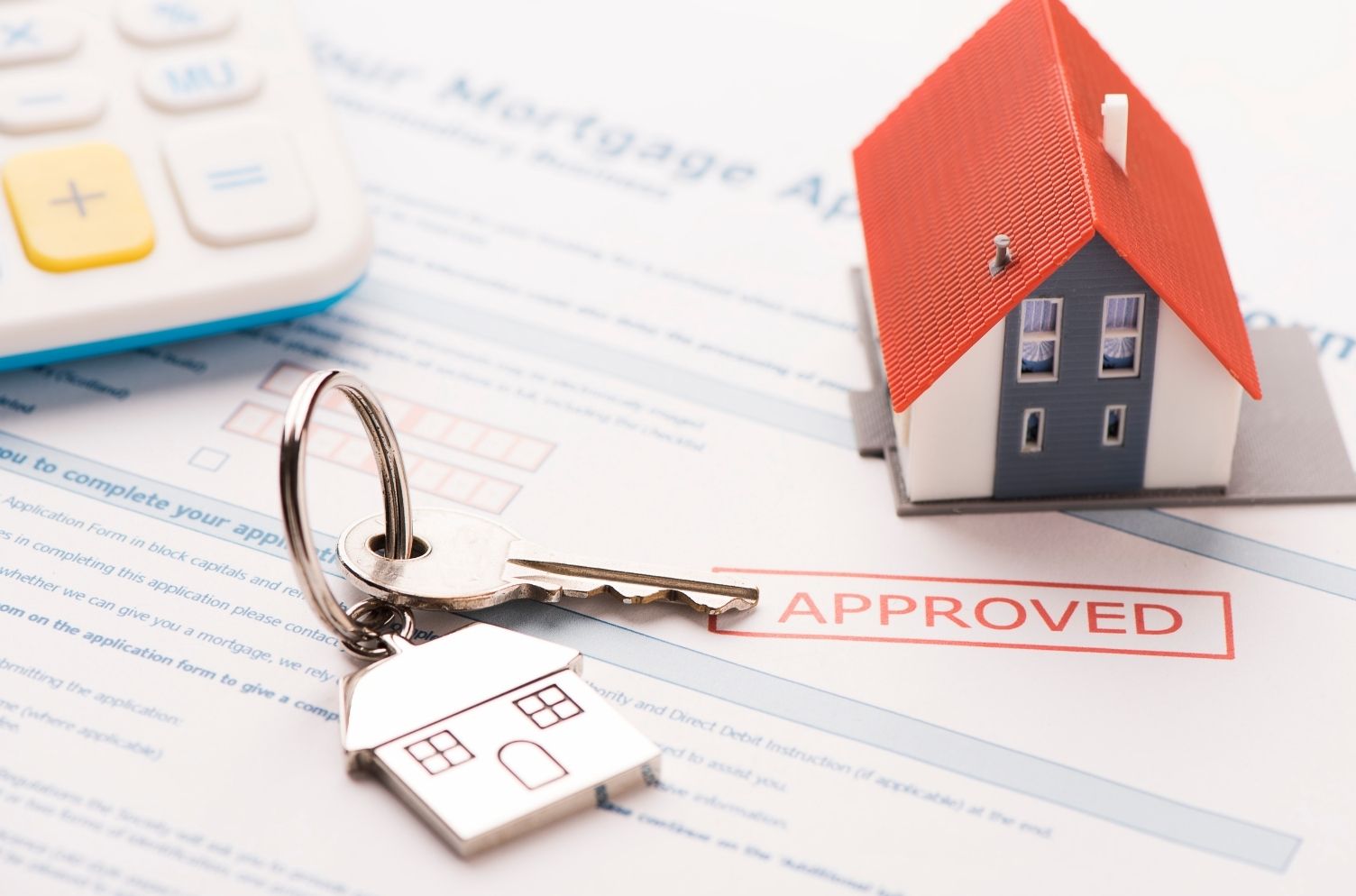The Borrowing Guide: How Much Can You Get Approved For A Mortgage?

Finding out how much you can borrow for a mortgage often feels confusing. One key fact is that lenders look at your financial health to decide on the amount. This article offers a step-by-step guide to understanding what mortgage loans you're eligible for and how to calculate them yourself.
Discover how easy it can be!
Understanding Mortgage Affordability
Figuring out "How Much Can I Borrow" or what you can afford is key before looking for a new home. A mortgage borrowing calculator helps you see how much money a mortgage broker might let you borrow for a house.
Importance of knowing what you can afford
Understanding how much you could borrow before diving into the mortgage process is crucial. It lays down a solid foundation for successful homeownership. Knowing your affordability range helps in making an informed decision, ensuring that you're looking at homes within your financial reach.
This foresight prevents future financial strain by aligning your home purchase with your budget and long-term financial goals.
By recognizing how much mortgage you can take, it becomes easier to navigate through the borrowing guide with confidence. Affordability should always reflect not just what lenders believe you can borrow, but also what fits comfortably within your lifestyle and expenses.
Acknowledging this balance enables prospective homeowners to set realistic expectations early on, paving the way for a smoother home buying journey without overextending financially.
Using a mortgage calculator
A mortgage affordability calculator becomes a crucial tool for understanding how much you can borrow for a mortgage. By inputting your annual income, current monthly debts, the amount of down payment, and your state of residence, it provides an instant estimate of the borrowing capacity.
This tool simplifies the process by taking into account basic financial information to offer a clear view of what you might afford in terms of mortgage loans.
Mortgage calculators also help potential borrowers play around with different scenarios. Adjusting the down payment size or comparing loan terms can show how these changes affect your monthly payments and outstanding loans amounts.
It empowers users with knowledge on how much mortgage they can take before approaching lenders, making them better prepared for negotiations and decisions surrounding their future home purchase.
Factors that affect affordability
Knowing how much mortgage you can afford is crucial before starting your home-buying journey. Several factors impact how much you can borrow for a mortgage, from your income to the type of loan you choose. Here are some key factors that determine your mortgage affordability:
- Annual Income Before Taxes: Your income is the foundation of how much mortgage you can take. Lenders look at your pre-tax income to decide the maximum amount they believe you can afford to repay.
- Monthly Debt Payments: This includes any credit card payments, car payments, student loans, as well as alimony and child support payments that you're responsible for. These debts reduce the amount lenders think you can pay towards a mortgage each month.
- Credit Score: A higher credit score often means better interest rates and loan terms, which can affect how much you qualify for in terms of a mortgage loan.
- Down Payment Amount: The more money you put down upfront, the less you have to borrow, which could increase the price range of homes you can afford.
- Type Of Home Loan: Different home loans have varying requirements and limits on how much they'll lend, influencing your affordability.
- Property Tax And Homeowners Insurance: These costs are part of your monthly mortgage payment and will impact the total amount you're able to borrow since they need to fit within what's considered affordable for your yearly income level.
- Homeowner Association (HOA) Fees: If buying into a community with an HOA, these valuation fees will also be part of your monthly expenses and affect how much house you can afford.
- Location Of The Property: Where the home is located can greatly influence its cost due to differences in property value taxes, insurance rates, and even HOA fees across various areas.
Understanding these factors helps paint a clearer picture of what impacts how much mortgage loan one may be approved for during their home-buying process.
How to determine how much you can afford
After considering the factors that affect mortgage affordability, the next step is figuring out how much you can comfortably borrow for a mortgage. Start by using an online mortgage calculator which will require information like your income, debts, and down payment amount.
This tool gives an estimate of how much mortgage you might take, aligning with lenders’ standard rule that your monthly housing payment should not exceed a certain percentage of your income.
While exploring how much you can borrow for a loan, don't forget to think about different loan term options such as 30 years or 15 years. Opting for a longer term means lower monthly payments but more interest paid over time.
Conversely, shorter terms lead to higher monthly payments but less interest in total. Remember to factor in the size of your down payment too; larger down payments mean borrowing less and saving on interest costs over the life of the loan.
Impact of Credit Score and Debt-to-Income Ratio
Your credit score and debt-to-income ratio play crucial roles in how much mortgage you can take out. Explore more to see how these elements shape your borrowing power.
How these factors affect affordability
Your credit score plays a crucial role in determining how much mortgage you can take. Lenders use it to gauge your reliability as a borrower. A higher credit score means lower interest rates, which translates to more affordable payments and access to larger loan amounts.
On the flip side, a low credit score could lead to higher interest rates or even denial of your mortgage application.
The debt-to-income ratio further influences mortgage loans explained by financial experts. This ratio measures your monthly debt against your gross income. Lenders prefer borrowers with a lower ratio, as it indicates that they are not overly burdened by debt and are more likely to manage monthly mortgage payments successfully.
Balancing this ratio can significantly impact how much you can borrow for a loan, making it easier or harder to afford the home of your dreams.
Tips for improving credit score
Understanding how credit scores and debt-to-income ratios affect mortgage affordability is crucial. Now, let's focus on practical steps to boost your credit score for better mortgage terms.
- Check your credit report regularly for errors and dispute any inaccuracies you find. Mistakes can lower your score unfairly.
- Pay all your utility bills on time, every time. Payment history is a significant component of your credit score.
- Reduce the amount of debt you owe, especially on credit cards. Lowering your utilization ratio can positively impact your score.
- Avoid opening new credit accounts too frequently as this can lower your average account age and temporarily reduce your score.
- If you have a limited credit history, consider becoming an authorized user on a family member’s account or getting a secured credit card.
- Keep older accounts open since they contribute to the length of your credit history, which can help improve your score.
- Diversify the types of credit you have, including both revolving accounts (like credit cards) and installment loans (such as auto loans).
- Seek opportunities to raise the limits on your existing credit cards but resist the urge to spend more with higher limits.
Improving these elements not only enhances how much you can borrow for a mortgage but also might qualify you for lower interest rates on what you borrow.
Other Factors That Impact Home Affordability
Down payment size significantly changes how much house you can afford. The type of mortgage and the home's location also play huge roles in your buying power.
Down payment amount
Saving a larger down payment amount can significantly impact how much mortgage you can take. By putting more money upfront, you reduce the total amount you need to borrow for a loan, which also lowers your monthly payments and interest costs over the life of the mortgage.
This means that not only do you make your loan more affordable, but you also increase your chances of getting approved for a mortgage since lenders see a lower risk in lending to someone who has invested more in their home from the start.
For those struggling to save enough for a big down payment, there are down payment assistance programs available. These programs are designed to help borrowers cover the initial costs of purchasing a home, making it easier for them to achieve homeownership without waiting years to save up a large sum.
Such assistance could potentially allow buyers to qualify for better loan terms or buy their homes sooner than they thought possible.
Type of home loan
Different types of home loans can significantly impact how much mortgage you can take. For instance, options range from 30-year and 20-year to shorter terms like 15 years or even 10 years.
Each option has its own set of benefits and drawbacks regarding monthly payments and the total interest paid over the life of the loan.
Choosing between these loan term options affects your overall mortgage affordability. Longer terms generally offer lower monthly payments but result in more interest paid out over time, whereas shorter terms mean higher monthly payments but less interest throughout the loan's duration.
This decision plays a crucial role in determining how much you can borrow for a mortgage, influencing both your immediate budget and long-term financial planning.
Making the Right Decision
Making smart choices about your mortgage involves weighing today's rates against future market predictions. Deciding if you should buy now or wait can significantly affect your financial health.
Considering current mortgage rates
Current mortgage rates play a crucial role in determining how much mortgage you can afford and ultimately influence your decision on how much you should borrow for a mortgage. Low interest rates can significantly reduce the amount you pay monthly, allowing you to afford more expensive homes or save money for other expenses.
On the flip side, higher rates mean higher monthly payments, which might limit how much you can borrow for a loan.
Mortgage rates fluctuate based on various economic factors and decisions made by financial institutions. Keeping an eye on these changes helps potential homebuyers time their purchases to benefit from lower interest costs.
Before deciding whether to buy now or wait, consider how current rates affect your monthly repayments and overall budget.
Interest rates have a direct impact on your home buying power; understanding their movement is key.
With this in mind, exploring whether to buy now or wait becomes the next step in making informed borrowing choices.
Conclusion
Finding out how much mortgage you can get approved for opens the door to your dream home. This guide walks you through every step, from using a mortgage calculator to understanding the impact of your credit score and debt-to-income ratio.
It also considers other crucial factors like down payment amount and loan type. Armed with this knowledge, making an informed decision becomes much easier. Explore these tips and tools to navigate your way to a mortgage that fits comfortably within your budget.
FAQs
1. How do I find out how much I can borrow for a mortgage?
You can find out how much you can borrow by talking to lenders who will look at your income, debts, and credit score.
2. What factors affect how much mortgage I can take?
The amount of mortgage you can take depends on your earnings, the money you owe elsewhere, and your credit history.
3. Can I increase the amount I am approved to borrow for a loan?
Yes, improving your credit score or increasing your down payment might help you get approved for a larger loan.
4. Is there a limit to how much I can borrow for a mortgage?
Lenders usually have limits based on your debt-to-income ratio but it varies depending on the lender's rules and your financial situation.
Related Posts
Ask the Expert
Mortgage Brokers




